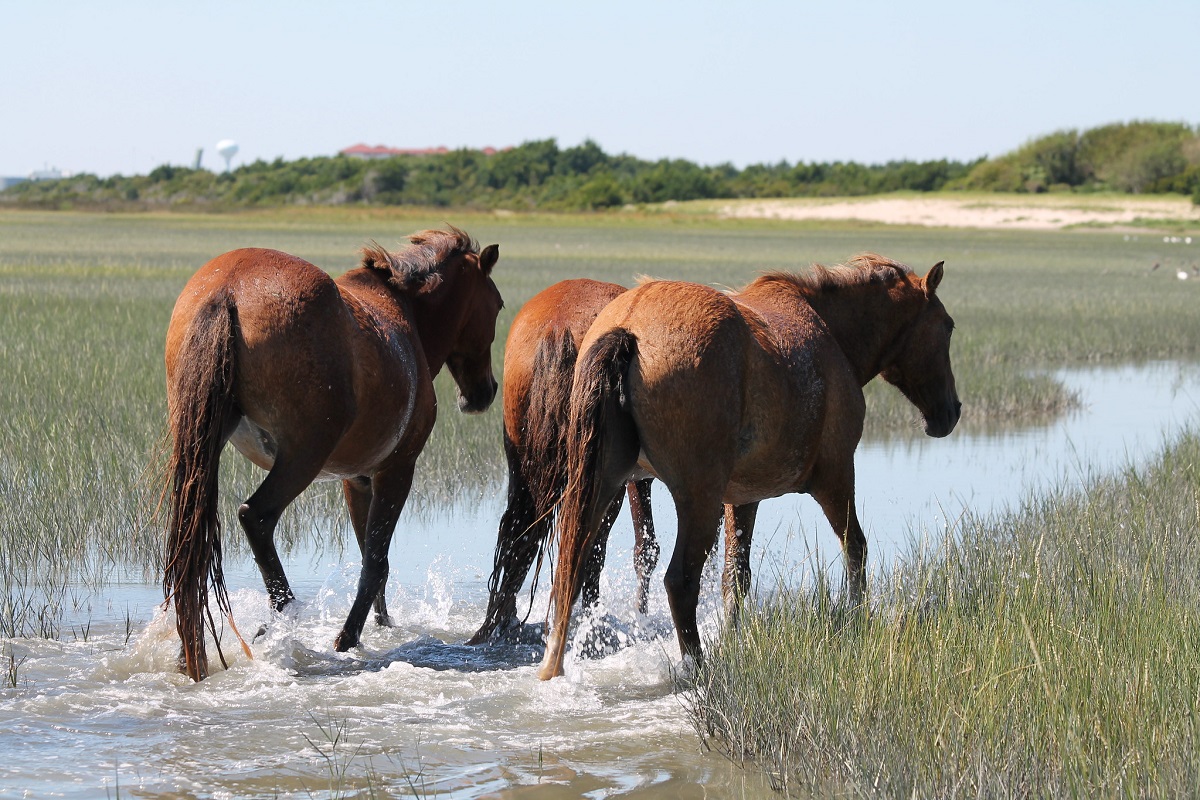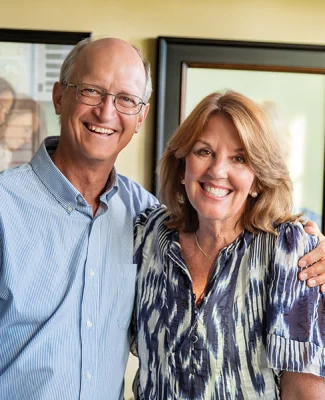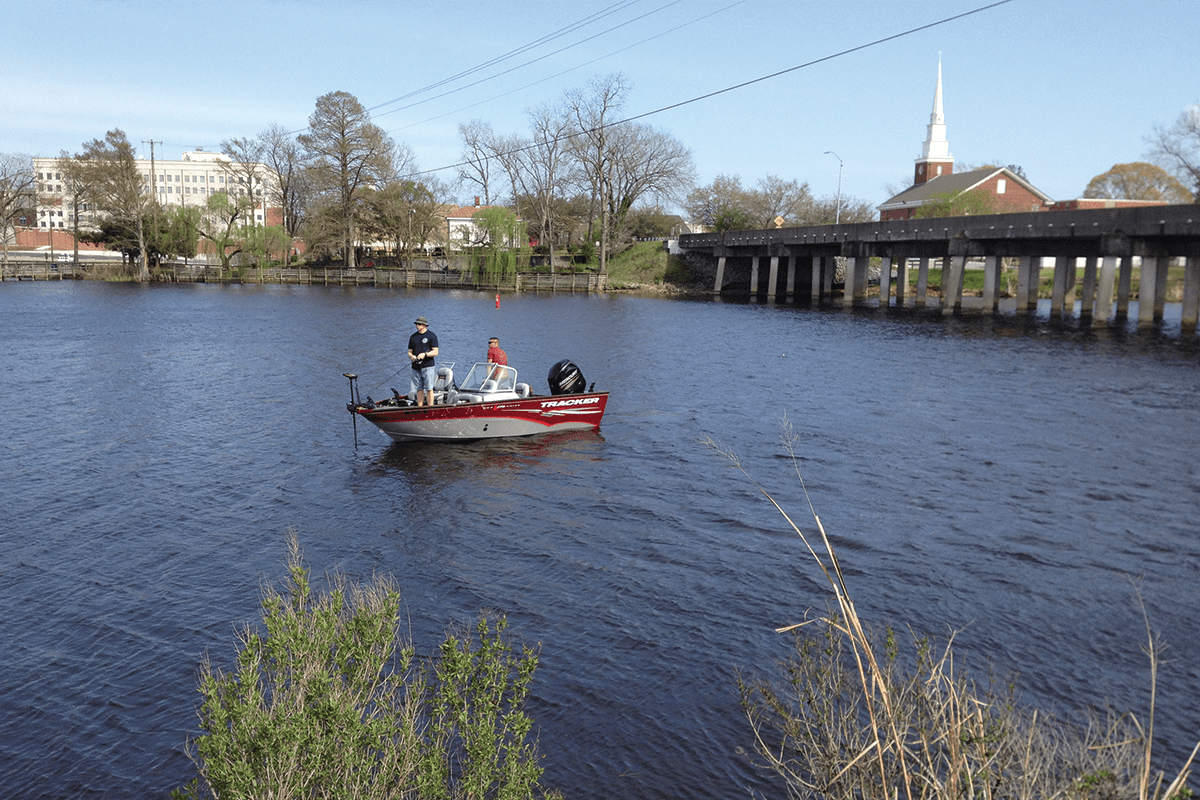
Since beginning the Coins for Conservation program at Inlet Inn in Beaufort a little over a year ago, owners Jay Tervo and Barbara McKenzie have raised more than $12,000 to benefit the coastal environment.
McKenzie said she and her husband became owners of the inn in May 2019. A professional pianist, she said in an interview that her husband pitched the idea of buying the inn to her, and they went for it. She said it was something new and that she was ready to take a break from the pressures of performing.
Supporter Spotlight
In August 2022, they began Coins for Conservation, a voluntary giving program that “creates fundraising partnerships between community businesses and trusted nonprofit eco-partners serving our Eastern NC community.” The platform was officially launched in May with a kick-off event in Beaufort.
McKenzie explained that the idea was inspired by a similar program she learned about while visiting St. Simons, Georgia. They were staying in a historic downtown inn there and noticed a small charge on the bill for Pennies for Preservation.
After learning more about the voluntary giving program during her visit, “I was really inspired by what they were doing in that community,” she said. “I knew that we could do something like that here, and that it would be really important to do something like that here.”
McKenzie said they designed the program “to showcase major environmental partners in the area,” which for them, she said is the North Carolina Coastal Federation, Coastal Carolina Riverwatch, Friends of the Reserve, and Atlantic Beach Sea Turtle Project.
The way the program works is any kind of business based anywhere visits the coins4conservation.com website and chooses one, two, three or all four nonprofit eco-partners listed. The business representative is to then contact the leadership of the nonprofits they want to support and together develop a strategy to raise funds. The business then works with that nonprofit to execute their plan.
Supporter Spotlight

The program is not a nonprofit, she said. Rather, Coins for Conservation is “Saving Nature’s Treasures” by funneling donations directly to the environmental organizations “that actually do the work in securing the environmental protection that we need here.”
When they launched Coins for Conservation last summer, McKenzie said they began adding $4 to each reservation. Guests were made aware that the donation is completely voluntary and that guests could easily opt out by speaking to the front desk.
Not many have though: McKenzie said they have “97-plus-percent participation rate.”
Looking back, she said, most of the people who choose to opt out are those traveling for business. But, there are others who donate extra.
Guest reception “has been really great,” she said, adding that most Beaufort visitors want to be able to protect what’s there, and they see that it’s really precious. “If we don’t do something to educate and promote environmental good practices, then it won’t be here.”
She reiterated that the entire program is voluntary. “The donations are voluntary. The business participation is voluntary, and who we choose to give the donations to from our guests, it’s voluntary.”
The Inlet Inn’s eco-partners are the Friends of the Reserve and the Coastal Federation, which publishes Coastal Review.
Coastal Federation Business Engagement Director Catherine Snead said that the organization is extremely grateful to the Inlet Inn for this initiative and their proactive approach to local conservation.
“They recognized the need for safeguarding our coastal ecosystems, and implemented a plan to raise awareness and make a positive difference in our community by giving back. The funds generated by Coins for Conservation will undoubtedly leave a lasting impact on our shared coastal environment,” Snead said. “The Coins for Conservation model represents a perfect synergy of commerce and compassion, and the Coastal Federation wholeheartedly thanks Barbara and Jay for their invaluable support. Together we will ensure the continued health and resiliency of our coastal habitats for generations to come.”
The Beaufort Hotel joined the program in May. Their voluntary fee goes to the Friends of the Reserve. “And that is just going to be a huge contribution,” McKenzie said.
Beaufort Hotel General Manager Peter Grills told Coastal Review that in the two months they have been participating, June and July, fewer than 5% of their guests have chosen not to donate the $3 per stay.
“Many guests comment and thank us for giving them the opportunity to help keep the area as it is,” he said.
“We are always looking for ways to give back to the community we operate in. We chose the Friends of Rachel Carson Reserve as our recipient for this year, as we have always done work with them,” Grills said. “We have a community service day with our company, Concord Hospitality, where we go into the community to do volunteer work.”
Since opening, the Beaufort Hotel has taken a team to the island and assisted by clearing walking trails. “We do this every November, and it’s fun for our associates to participate. The choice to give to the Friends that support the reserve was a natural fit for us.”
Volunteers with the Atlantic Beach Sea Turtle Project connected the group’s president, Michele Lamping, with Coins for Conservation. Lamping is an aquarist and sea turtle specialist at the North Carolina Aquarium at Pine Knoll Shores.
Lamping founded the nonprofit in 2021 to support the volunteer organization that protects nesting sea turtles, nests and hatchings in Atlantic Beach during nesting season May 1 through Sept. 30. She established the nonprofit to be a way to receive donations for the project.
Lamping said any donations they receive through Coins for Conservation will go to operating costs that the volunteers have been funding out-of-pocket since starting the volunteer AB Sea Turtle Project began 15 years ago.
The funds will help buy materials to create shade cloths that are put around a nest to block light pollution from streets and houses, equipment like shovels and sand buckets, and maintenance for the utility vehicle they use to get between nests.
“Now, our big conservation impact that we’re trying to deal with is our biggest killer of turtles in Atlantic Beach, light pollution,” she said, and any funds they receive will go to educational materials to get that message out, especially on their website.







